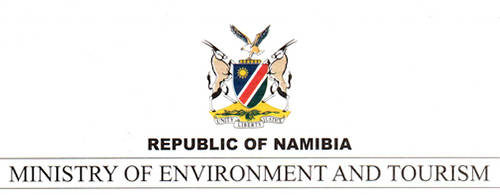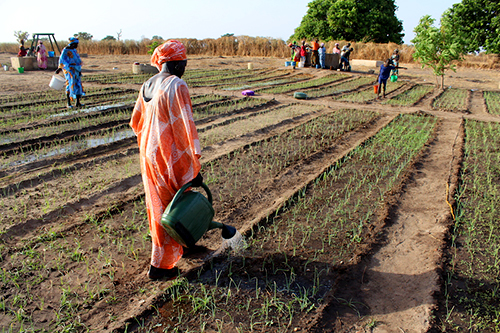 In an April 20 letter, Namibia’s Ministry of Environment and Tourism extended gratitude to NCBA CLUSA for introducing country-specific conservation farming practices to smallholder farmers through the Namibia Conservation Agriculture Project (NCAP).
In an April 20 letter, Namibia’s Ministry of Environment and Tourism extended gratitude to NCBA CLUSA for introducing country-specific conservation farming practices to smallholder farmers through the Namibia Conservation Agriculture Project (NCAP).
“The methods promoted by your esteemed organization not only promote and create much-needed food security, but also improve and conserve soil, which is in line with the Namibia National Policy on Climate Change,” Permanent Secretary Simeon N. Negumbo said in the letter.
Secretary Negumbo also took the opportunity to inform NCBA CLUSA senior leadership that 70 farmers trained in conservation farming by NCBA CLUSA have been invited to demonstrate climate-smart agriculture practices during Namibia’s Conservation Agriculture Information Day, scheduled for June 17, 2015.
 NCAP will send 50 of the project’s lead farmers, while an additional 20 farmers will be culled from NCBA CLUSA’s Resilience Agriculture Interventions in Namibia (RAIN), according to in-country project staff.
NCAP will send 50 of the project’s lead farmers, while an additional 20 farmers will be culled from NCBA CLUSA’s Resilience Agriculture Interventions in Namibia (RAIN), according to in-country project staff.
Conservation Agriculture Information Day will commemorate the 2015 World Day to Combat Desertification, a United Nations global observance day to curb desertification and the effects of chronic drought through public awareness and international cooperation. Namibia’s Ministry of Environment and Tourism has dedicated this year’s observances to recognizing the success of conservation farming.
“We’re very glad that the Namibian government has had such a positive view of the Namibia Conservation Agriculture Project and are looking forward to highlighting some of our best farmers at this event,” said Jane Podolsky, NCBA CLUSA Senior Program Manager for East and Southern Africa.
The $2 million USAID-funded NCAP project is teaching more than 10,000 farmers how to maximize rainwater retention, protect soil fertility and increase crop productivity through Namibia-specific conservation farming techniques. By digging deeper furrows, farmers are able to break up the hardpan so soil and roots can absorb the moisture, avoiding runoff. Farmers are now harvesting 3,680 pounds of millet per 2.5 acres, compared to 660 pounds prior to project interventions.
The conservation farming and early planting techniques recommended by NCAP also helped farmers in Namibia not only withstand, but thrive during a national drought emergency in 2013. The overall goal of the project is to mitigate the impact of drought and flood events in the region.


